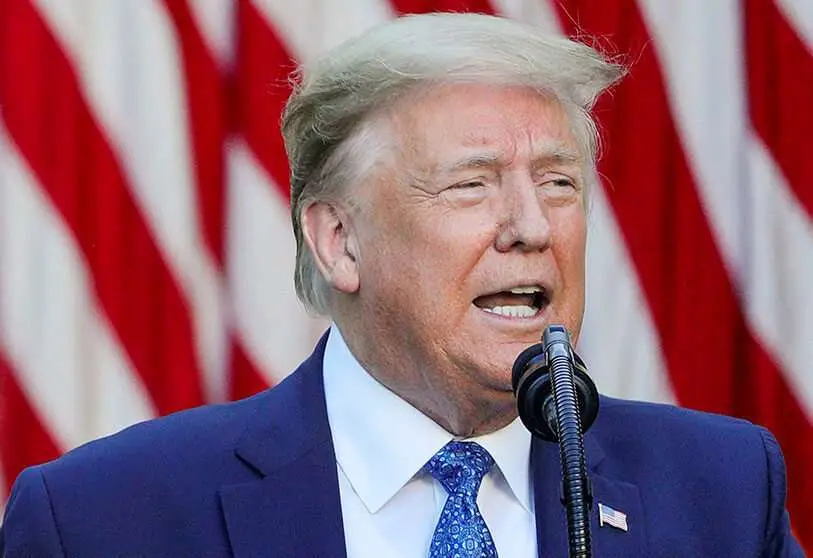Trump's punch on the IDB table

Another wall that falls, another tradition that passes away. The unwritten rule that the president of the Inter-American Development Bank (IDB) was always a Latin American has been abruptly interrupted by the election of Mauricio Claver-Carone, a candidate imposed by Donald Trump, and elected in a secret ballot by 30 of the 48 member countries. Spain, together with the 12 EU countries that are shareholders of the IDB, preferred to abstain, thereby following the suggestions of Argentina, the country most determined to veto Claver-Carone's candidacy.
The new president succeeds Colombia's Juan Luis Moreno, who was preceded in the post by the Uruguayan, born in Asturias, Enrique Iglesias. Claver-Carone, who was born in the United States, is of Cuban descent and spent a few years in Spain during his first years of life. He is considered to be a neoconservative of the harshest wing, spokesman for the Cuban exile in Miami, and one of the most tenacious inspirers of the United States in breaking with the policy of conciliation that Barack Obama had initiated towards Cuba. Also, of the progressive encirclement of the Chavista regime of Nicolás Maduro. Neither Cuba nor Chavista Venezuela is a member of the IDB, although the president in charge, Juan Guaidó, is represented and recognised at the Banco la Venezuela, which led to the immediate departure of Maduro's emissaries.
Both as the United States' representative at the International Monetary Fund (IMF) and as adviser to the National Security Council, Claver-Carone has inspired the Trump Administration's policies towards Latin America, which are aimed primarily at stemming the advance of China and Russia into a territory from which Spain seems increasingly distant. Suffice it to say that the representative office for Europe has been based in Madrid since July 2012, but the outgoing president of the IDB had already arranged for the office to be moved to Brussels, a move that the new president has shown himself willing to neutralise. In several statements prior to his election, Claver-Carone had pointed out that "Madrid is Latin America's door to Europe", just as "Miami, where I was born, is Latin America's door to the United States".
The IDB is the major co-financer of major development projects in Latin America, and there is little doubt that the new initiatives will bear the stamp of the new Cuban-American president. His access to the bank's highest executive power also means that the United States is taking control of the last genuinely inter-American institution left; the other is the Organisation of American States (OAS), whose secretary general, Luis Almagro, has imposed a bias clearly contrary to that of the populist and neo-communist regimes.
If the supposed secret pact between Donald Trump and the Brazilian president, Jair Bolsonaro, is also fulfilled, the executive vice-presidency of the IDB will be held by a Brazilian, which will definitively put an end to the process begun by the Colombian Juan Luis Moreno of giving China more weight in the financing of major infrastructure projects on the continent.
The big loser in this election is Fernández & Fernández's Argentina, which even tried to get the vote postponed by manoeuvring not to reach the necessary quorum of 75% of the votes (Spain holds 2%). As it did not obtain the decisive support of Mexico, it chose both not to put forward its own candidate and to abstain from voting, an action with which it united Spain and its European partners, which was clearly insufficient, compared to the 66.8 percent of the votes obtained by Mauricio Claver-Carone. The Casa Rosada, immersed in the extremely difficult process of renegotiating its bankruptcy with the IMF, harshly criticised the violation of "a tradition of regional governance of an institution, which has been maintained in its 60 years of existence as a pluralistic body, serving the interests of Latin Americans and Caribbeans, and without becoming a tool of diplomatic interventionism".
Claver-Carone has also pledged to remain in office for only one five-year term. A period of time sufficient to radically change the bank's lines of action. And also a springboard from which to jump to other aspirations within the United States, where a profile of the Republican hawk is already taking shape, the trend that seems to be prevailing in the Great Old Party once phagocytised by Donald Trump.

